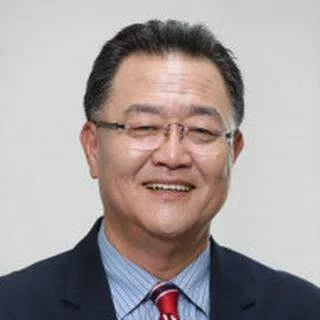The world will see a more provocative North Korea
Academic Kang Jun-young examines the recent rhetoric by North Korean leader Kim Jong-un, especially comments relating to the prospect of nuclear war. How likely is that, and how will continuing US-China tensions and upheavals in this year of elections around the world affect the stability of the Korean peninsula?
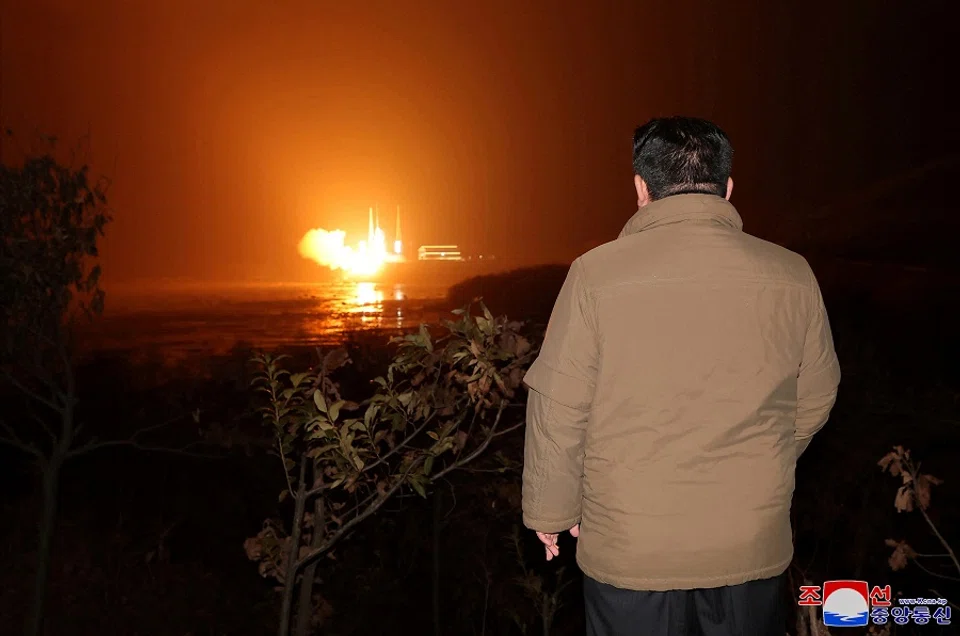
In 2023, the world saw conflicts over political, military, ideology and economic security issues, and went through compounding crises that were extremely divisive.
The US-China strategic competition continued while there was no sign of an end to the Russia-Ukraine war. North Korea was a constant and reckless provocateur that capitalised on the opportunity to form an operative military alliance with Russia; it stirred up a new Cold War situation with South Korea, the US, and Japan on one side, and North Korea and Russia on the other. Meanwhile, the Israel-Hamas conflict ignited regional tensions in the Middle East.
... there is a direct correlation between the ongoing provocations by North Korea that jeopardise the stability of the Korean peninsula and the future course of US-China ties.
With the world still recovering from the aftermath of the coronavirus disease, countries are showing ethnocentrism and extreme protectionism in the wake of everything that has happened.
Elections and more
It is amid such extreme uncertainty that we begin 2024, said to be the largest year for elections in history. According to the International Foundation for Electoral Systems (IFES), this year a total of 76 territories are set to hold elections, with more than half of the world's population - 4.2 billion voters - involved in various elections.
From Taiwan's presidential elections on 13 January, dubbed the "US-China proxy war", to elections in Russia in March where Vladimir Putin could be returned to power, to the European Parliament elections in June where extreme right-wing forces may get elected, the elections for the next leader of Japan's Liberal Democratic Party following Prime Minister Fumio Kishida slated for September, to the rematch between Biden and Trump during the US elections in November, the world is mired in a storm of elections this year.
There is also a lot of attention on whether the US can continue to be involved in the two wars in Ukraine and the Middle East until the elections.
Also, during the APEC summit last year, the Biden-Xi summit reached a consensus to "ensure that competition does not escalate into conflict". Signs of China-US relations entering the "management phase" would also have a major impact on international affairs.
In particular, South Korea, which is closely linked to international supply chains and regional security, needs to be vigilant about all election results. This is because there is a direct correlation between the ongoing provocations by North Korea that jeopardise the stability of the Korean peninsula and the future course of US-China ties.
North and South Korea
However, this year a pall has been cast over the Korean peninsula.
In late December 2023, during a plenary session for the Workers' Party of North Korea, North Korean leader Kim Jong-un redefined relations between North and South Korea. According to him, North and South Korea no longer share ethnic ties, and are now two countries on opposite sides, engaged in a war.
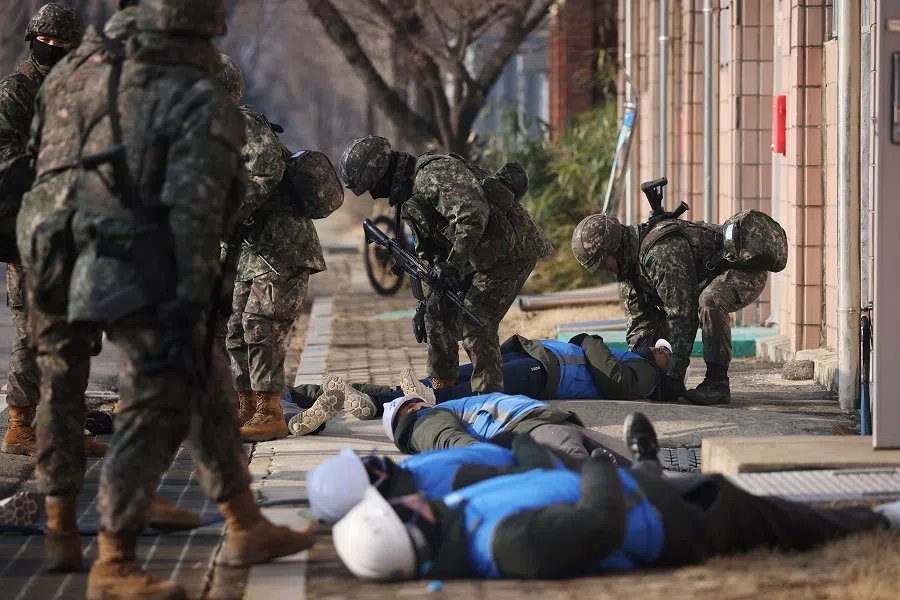
Kim also declared that a federal reunification was impossible, and instead stressed that under extraordinary times there was a need to mobilise all practical measures and power - including nuclear power - in order to "suppress the whole territory of South Korea" in case of a "great event", referring to an armed conflict.
This is the stance for forceful reunification promulgated by North Korea, dismissing the need for dialogue and supporting the pre-emptive use of nuclear weapons.
... to secure its status as a nuclear power, North Korea adopted a strategy of raising military tensions on the Korean peninsula in an attempt to gain concessions from the US and South Korea.
Notably, the latest plenary meeting stressed that the foundation for a sustained increase in the production of nuclear weapons would be set up, and that the nuclear weapons programme this year would be carried out without fail, with plans to launch an additional three spy satellites.
Kim also blamed the US and its followers for increasing military tensions on the Korean peninsula, saying that South Korea has become a US forward military base and a nuclear factory, strongly condemning the deployment of US military strategic assets in the Korean peninsula as well as the South Korea-US-Japan joint military exercises. Kim made clear his strategy for a head-to-head showdown against the US and South Korea, threatening that "war" in the Korean peninsula was edging towards reality.
The Kim regime's exposition of a reunification by force at this juncture could be due to the intensifying institutional competition between the two Koreas, and the practical need to ensure the status of a nuclear-armed state.
In addition, to secure its status as a nuclear power, North Korea adopted a strategy of raising military tensions on the Korean peninsula in an attempt to gain concessions from the US and South Korea.
Sabre-rattling by North Korea
Coupled with the United Nations (UN) Security Council's sanctions against North Korea, sealed borders as a result of the Covid-19 pandemic, as well as natural disasters, North Korea needs to quell its public grievances amidst worsening food shortages and the economic crisis. It also emphasised the use of military means against South Korea to suppress North Koreans' longing for South Korea.
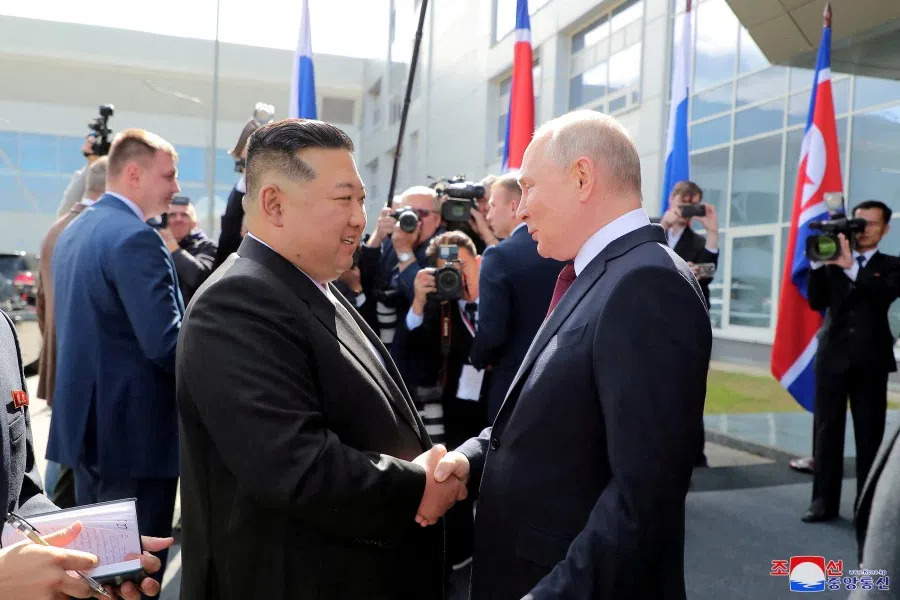
In fact, earlier at the Sixth Enlarged Plenary Session of the 8th Central Committee of the Workers' Party in 2022, North Korea already suggested the "mass production of tactical nuclear weapons and exponential increase in nuclear warheads", and asserted its determination to use pre-emptive nuclear strikes in the event of an emergency.
And in March 2023, North Korea unveiled miniaturised, lightweight tactical nuclear warheads identified as the "Hwasan-31", and also launched its solid-fuel intercontinental ballistic missiles "Hwasong-18" three times in 2023 alone. It even claimed to have successfully launched its first military spy satellite "Malligyong-1" in November 2023. So, rather than pursue dialogue, North Korea has chosen to be heavy-handed.
Although North and South Korea signed the Comprehensive Military Agreement (CMA) in 2018, after two failed attempts to launch spy satellites in 2023, North Korea successfully launched a spy satellite on 21 November 2023 on its third attempt with Russia's help. In response, the South Korean government suspended Article 1, Clause 3 of the CMA, which established no-fly zones close to their border.
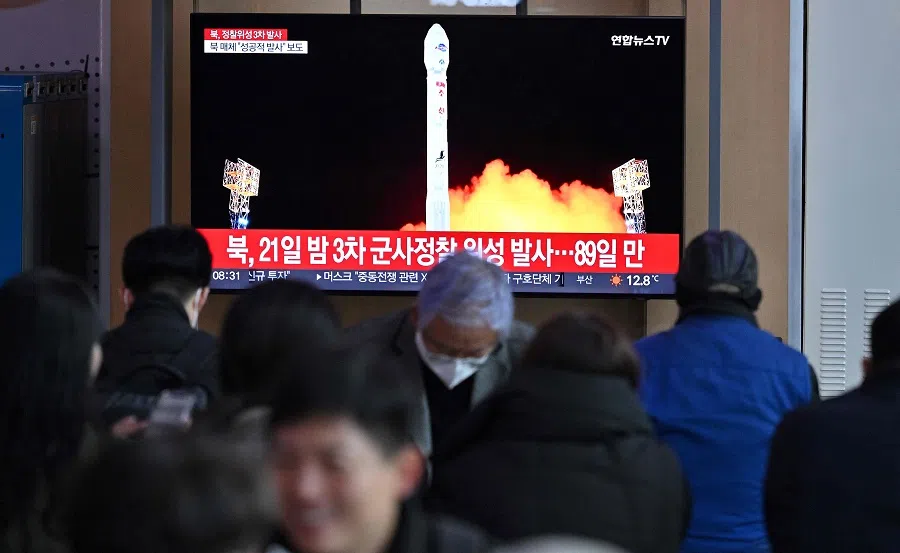
North Korea opposed this and swiftly reactivated 11 strategic observation posts (GPs) along the Demilitarised Zone, officially annulling the CMA. Like its rhetoric to "suppress the whole territory of South Korea" in case of a "great event", North Korea's military provocations have become crude and may evolve into a military conflict.
South Korea's response
Of course, South Korea has also prepared a thorough response. South Korean President Yoon Suk-yeol stated in his 2024 New Year Address that the country will complete the enhanced ROK-US extended deterrence system to fundamentally deter any North Korean nuclear and missile threat by the first half of 2024.
He stressed, "The Republic of Korea is firmly building a genuine and lasting peace. Korea will build peace through strength. It will not be a submissive peace that is dependent on the good will of the adversary."
South Korea now has a three-axis system comprising the Kill Chain, which pre-emptively strikes the source of an attack; Korea Air and Missile Defense, which intercepts the incoming missiles; and Korea Massive Punishment and Retaliation, which eliminates the adversary's command-and-control.
North Korea will likely continue to engage in provocative behaviour ahead of the US presidential election in November to strengthen its leverage to formulate new negotiations in the future.
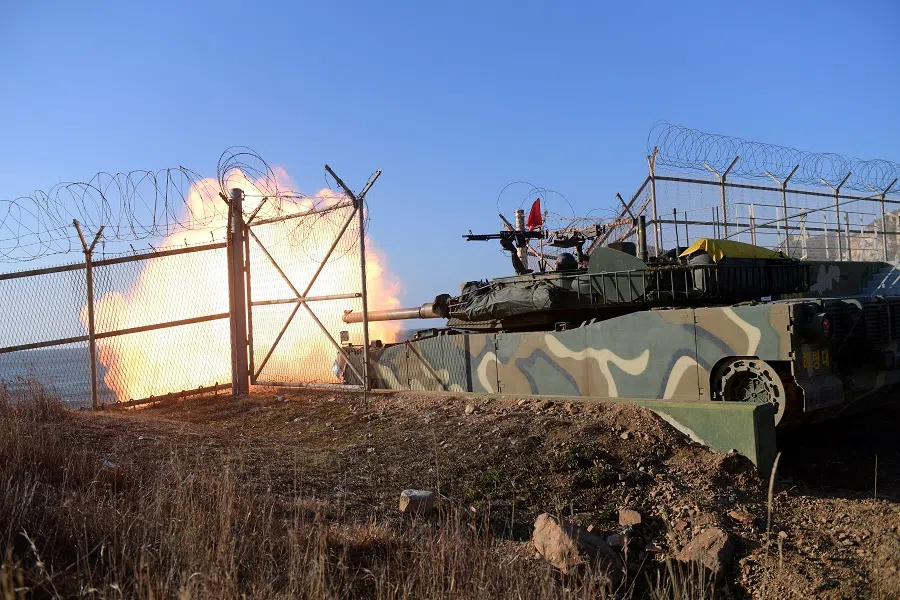
In fact, North Korea's intent to continue conducting provocative acts prohibited by relevant Security Council resolutions is in blatant disregard for the UN and international community. Coupled with China's and Russia's vetoes in the Security Council against tightened sanctions on North Korea, the suffering and hardship that North Koreans had to endure due to North Korea's blind development of nuclear weapons and missile programmes, and the shifting of blame for the collapse of North-South relations and the worsening situation on the Korean peninsula to South Korea, is simply the pot calling the kettle black.
Looking at the current situation, North Korea will likely continue to engage in provocative behaviour ahead of the US presidential election in November to strengthen its leverage to formulate new negotiations in the future.
But North Korea should also understand that such attempts are a direct threat to world peace; it is merely a self-contradictory hereditary dictatorship that sacrifices all else to maintain its own institution, and that quickly returning to the negotiating table would be the least North Korea can do to survive.
This article was first published in Lianhe Zaobao as "朝鲜半岛的复合危机时代".
